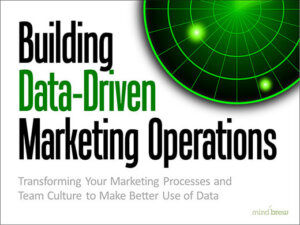If you’re like most B2B marketing professionals, you have absolutely no interest in working in sales. Ever. You might even treat sales as a dirty word.
Like most of your marketing colleagues, you probably have a college degree, and people say you’re smart and fun. You don’t mind talking on the phone or taking part in a meeting, but that’s not what you want to be doing all day. You’re comfortable working with both words and numbers, and you probably spend lots of time editing documents and analyzing spreadsheets. While you’re goal-oriented, you’d rather get a steady paycheck than tie your income to something as unpredictable as a commission.
The folks in sales are a little different.
They tend to be outgoing and thrive on interacting with other people, not sitting behind a desk. Most of them like things to be fast-paced. They love the thrill of competition and the excitement of “winning” a sale. They happily trade the predictability of a salary for the chance to earn a fat commission check. While marketing tends to focus on long-term goals like building a brand, sales is highly attuned to how things are going in the current month and the current quarter. And above all else, they are looking to close as many deals as possible.
Yes, salespeople are different than marketing people. But the company needs both of you in order to thrive.
Your organization needs both big-picture strategic thinkers and hands-on tacticians. It needs to plan for the long-term while getting some things done right now. It needs introverts to handle the desk work and extroverts who interact with customers.
In the best of worlds, each of those groups not only respects the others’ contributions, they actively collaborate and share their knowledge. As marketers, we sometimes discount the contributions of the sales team (just as they sometimes don’t appreciate what marketing does), but we could learn a lot from each other.
For example, while you might be able to describe your ideal customers in demographic terms, you don’t really know any of them. And if you don’t really know your customers, how can you create effective marketing messages? It’s not surprising that a recent study found that while 76 percent of marketing professionals think their company’s marketing collateral is effective, 64 percent of salespeople say their collateral isn’t effective.
Fortunately, learning the things that your sales team knows isn’t all that difficult. We’ve put together a guide called “How to Think Like a Masterful Salesperson.” It details the kind of information your salespeople have that you don’t, and it explains a step-by-step process for transferring that knowledge to the marketing department.
Sales isn’t a four-letter word, technically or metaphorically. Although you probably don’t want to work in the sales department, you might find that thinking like a salesperson takes your marketing skills to a whole new level. And that could be good for your entire organization.







